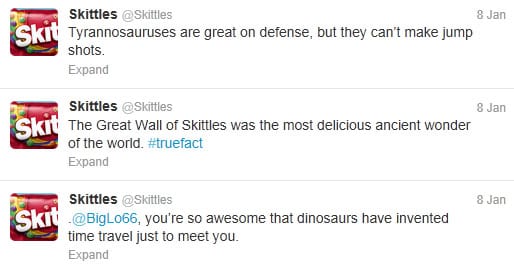As we’re all aware, this is an enormous week for sports. As frequent readers of this blog are aware, I’ll pluck an amalgam of excuses to infuse my weekly postings with anything of the sporting nature (usually consisting of a caffeine-laden rant about the Atlanta Braves – I’ll get to them later.) The 2012 Olympic Games got underway over the weekend, and tomorrow marks my favorite Christmas-in-July celebration: baseball’s trade deadline. With these two events, the social media convergence has begun across every online spectrum, with rumor and conjecture dominating the Major League Baseball landscape and time-delay spoilers raking in the headlines on what’s being coined the first ‘Real-Time Olympics.’
Last week we covered the area of responsible reporting in the Social Media Age – where the news comes to you, whether you’re ready or not. This week we’ll touch on Internet responsibility in the sporting atmosphere, where the Olympics and baseball’s trade deadline have already encountered social media snares with palpable consequences.
Twitter Shocks Ryan Dempster, Ryan Dempster Handcuffs the Cubs
I told you I’d get to my Atlanta Braves sooner than later. Chicago Cubs starting pitcher Ryan Dempster, currently compiling the best statistics of his career and preparing for another mammoth payday when he hits free agency this winter, was all but traded to the Atlanta Braves. In an ironic stroke of bad luck familiar only to lifelong Atlanta fans, Dempster nixed the trade after learning about it – not from his agent, not from Chicago – but from Twitter.
“THERE IS NO TRADE. Don’t know where this info came from,” Dempster tweeted, reportedly infuriated with the Chicago front-office for not first cluing him in on the news that he’d been shipped out of town before leaking it to the media. Dempster then invoked his 10-5 rights (ten years of service time/five years with one team gives a player the ability to veto any trade) to stick it to the team that was looking to revamp with younger (and cheaper) talent, saddling them with the rest of his contract and a disgruntled pitcher. Phrasing it in a way that only an old-school baseball man could, Chicago Cubs Manager Dale Sveum blamed ‘the Twitter, the Facebook’ for the trade’s collapse, and then desperately took to “the Googler” in an attempt to track down answers as to how the “Internet machine” foiled his trade plans.
Social Media and NBC Attempt to Spoil the Olympics
With the 2012 Olympic Games being dubbed as ‘the first real-time Olympics,’ enthusiasts have already encountered issues with NBC and social media that were not present in 2008. It’s safe to say the world didn’t revolve around the online world four years ago as it does now, and with the availability of split-second updates comes a new challenge: preserving the outcome of events for those of us who are unable to watch them live.
The much anticipated Michael Phelps vs. Ryan Lochte 400-meter race was aired on a tape delay, and NBC mistakenly broadcast the results on its Nightly News programming and social media outlets. #NBCSucks soon began trending on Twitter, and joke-accounts began cropping up left and right (most notably @NBCDelayed, which acquired over 1,300 followers that evening.)
NBC went into damage control mode, with executive producer Jim Bell responding to users’ grievances over his own Twitter account. NBC has announced they will now be more cognizant over differentiating between ‘live’ Olympic-happenings and tape-delayed footage, also warning viewers of potential ‘spoiler alerts’ before airing.
We’ve got an exciting week ahead of us, and for those like me who revel spend countless hours with our noses pressed in the sports section, it’s about as good as it gets. We’ve also got a week of learning curves; where producers, editors and baseball front-offices try their hands at adapting to a world where they’re still unfamiliar: the world where social media is the go-to source for round the clock coverage.
-Carter Breazeale
PR/PR Public Relations






